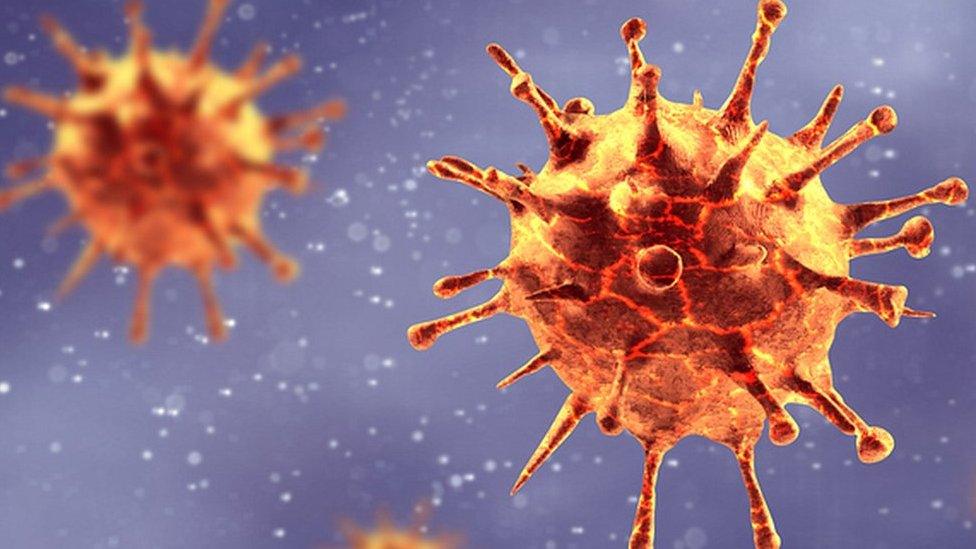Nine cases of new Covid strain reported in Scotland
- Published

Nine cases of a new variant of Covid-19 first identified in England have been reported in Scotland, First Minister Nicola Sturgeon has confirmed.
The cases were all detected in the Greater Glasgow area, and date back to the end of November.
The World Health Organisation has been notified about the new strain of the virus, with detailed studies ongoing.
Ms Sturgeon said there is nothing to suggest it causes a more severe illness in people, but it may spread faster.
She said people should not "prematurely overreact" to the development.
UK Health Secretary Matt Hancock revealed on Monday that the new variant of coronavirus had been recorded in at least 60 different local authority areas.
These cases were found predominantly in Kent, but it has now been confirmed that they have spread as far as Glasgow.
Nine cases have been identified in the Greater Glasgow and Clyde health board area, dating back to the end of November - although almost 15,000 new cases of coronavirus have been reported in Scotland overall across that period.
There is, as yet, "nothing to suggest" that the new strain causes more severe illness, or that it could prove resistant to vaccines.
Ms Sturgeon was briefed by the chief medical officer on Monday, and will take part in a four-nation call with other UK leaders later on Tuesday.
'Cause of great concern'
She told MSPs: "It is important to stress there is no evidence at this stage that this new variant is likely to cause more serious illness in people.
"And while the initial analysis of it suggests that it may be more transmissible, with a faster growth rate than existing variants, that is not yet certain.
"It may instead be the case that it has been identified in areas where the virus is already spreading more rapidly."
Scottish Conservative group leader Ruth Davidson said the new strain was "a cause of great concern", asking what was being done "to assess the virulence of the strain" and its transmission rate.
Ms Sturgeon said analysis was being undertaken by Public Health England, but said people should not "prematurely overreact".
She added: "It is important to say that none of what is currently known about this yet is absolutely certain."

